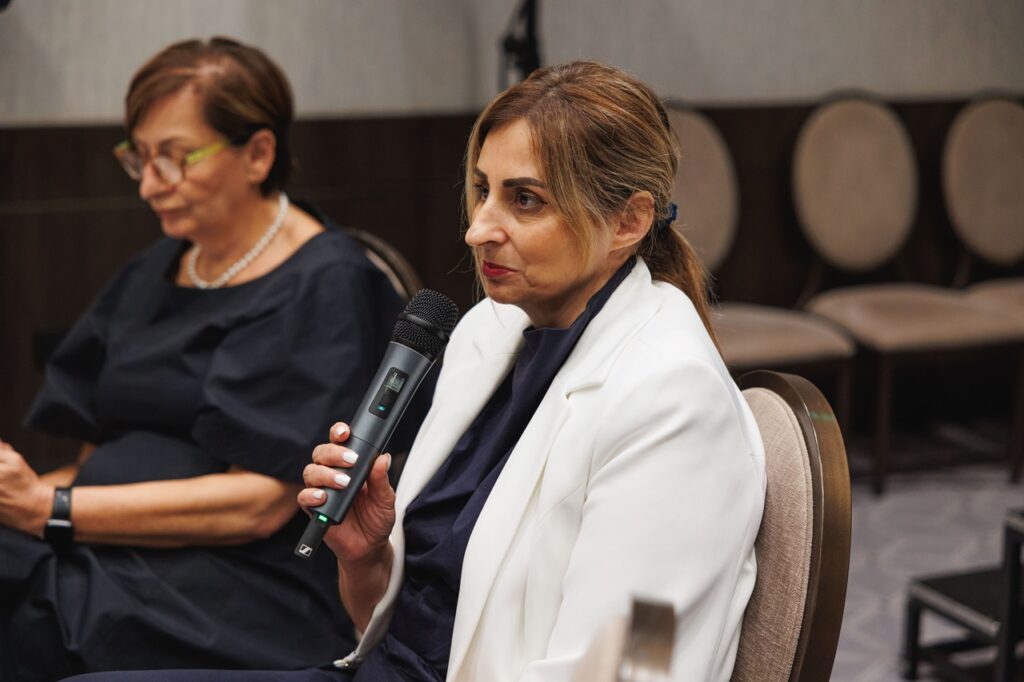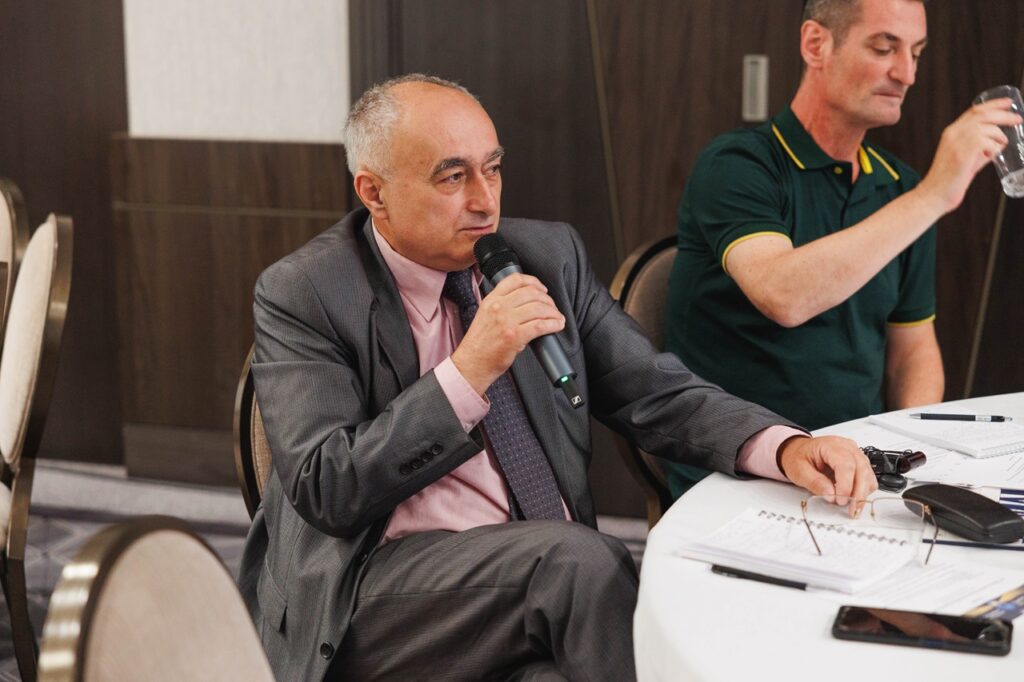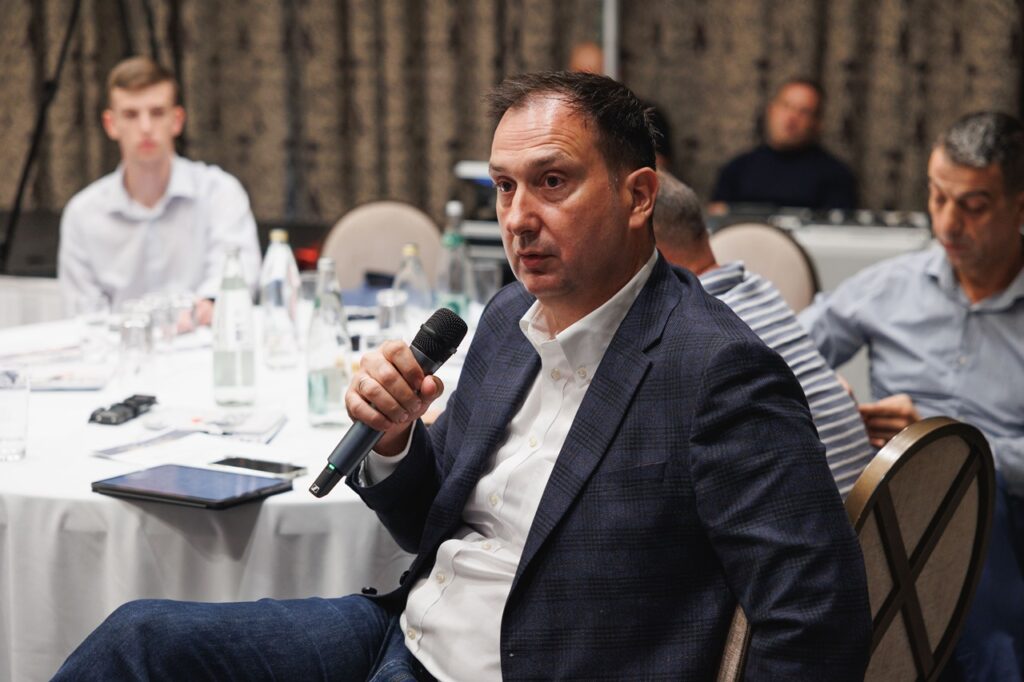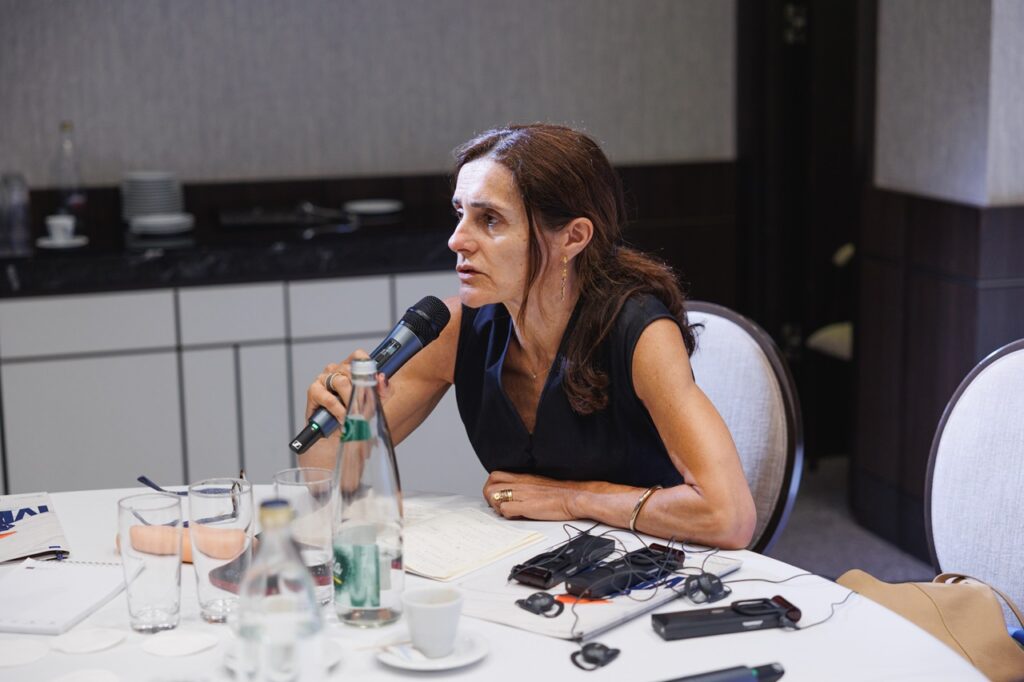Over the past three and a half years, the M’BASE programme has been a pillar of support for Montenegro’s civil society, both in terms of financing projects and strengthening capacities. EU fund utilization procedures remain very complicated for many NGOs, highlighting the need for simplification to enable broader participation from those with promising initiatives, as stated at the conference “The Path of Civil Society through the European Integration of Montenegro,” organized by the Centre for Civic Education (CCE) as the closing event of the project “CSOs in Montenegro – from basic services to policy shaping – M’BASE,” supported by the European Union and co-financed by the Ministry of Public Administration.
The final session, “Sustainability of CSOs: Success stories, learned lessons, and what needs to change?” led by Petar Đukanović, CCE Programme director, provided an opportunity for representatives of NGO sector and their partners and collaborators in the implementation of projects supported through the M’BASE programme to share experiences, highlight key challenges, and provide recommendations for improving the sub-granting model, all to ensure the long-term sustainability and efficiency of CSO support.
Participants emphasized the significant success of the M’BASE programme, noting its crucial role in strengthening their capacities for content and financial project management funded by EU resources. Recognition of a large number of small organizations and providing diverse support across Montenegro were highlighted, as well as the need to simplify administrative procedures in the future.
“However, for changes and advocacy, more time and resources are needed, which cannot be achieved through small projects. Therefore, my suggestion is to dinstinguish between small and larger organizations within future programmes, to better achieve their goals,” said Milija Čabarkapa from the EKO team.
“We have achieved our project goals, and this has been recognized in our community. I would like to emphasize that through our workshops, we worked with our users and family members because disability affects the entire family, not just the person with a disability,” stated Lidija Guberinić from the Municipal association for multiple sclerosis Bijelo Polje.
Many new forms of partnerships emerged from projects funded under the M’BASE programme, and this symbiosis has led to particularly successful initiatives.
“Our two projects focused on issues of space destruction in Montenegro, often driven by corruption and individual interests. These projects included a range of activities, including studies and films, and the key to their success was collaboration with expert small organizations, such as Expeditio and architects from KANA,” commented Milka Tadić Mijović from the Center for investigative journalism of Montenegro (CIN-CG).
Some projects lasted much longer than planned due to frequent changes in administration.
“Our project was based on cooperation with the Ministry of Internal Affairs, which became complicated with changes in government, so we had to remind each new administration of our Memorandum of Cooperation, all to educate citizens about police work, especially regarding the suppression of torture and similar human rights violations,” shared Martina Markolović from the Human Rights Action (HRA).
“We worked on the ground and on shaping public policies to encourage bicycle use through new trails and workshops that motivated the use of bicycles as a means of transport, not just for recreation. The result is the development and adoption of cycling development strategies in Kolašin, Rožaje, and Žabljak, indicating that the civil sector can significantly contribute to local community development. We believe that the recommendations from these strategies will improve this segment of tourism,” said Stefan Bulatović from the organization Biciklo.me, reflecting on their project.
“Thanks to the financial support of 75,000 EUR, which we received through two projects, our organization was able to expand its capacities and provide even higher quality support to our users. We especially emphasize the importance of continuous monitoring due to fictitious organizations that only drain resources,” noted Mimo Korać from the NGO Union of the Associations of Parents of Children and Youth with Disabilities “Our Initiative”.
Dejan Tmušić from the Paraplegic Association Cetinje expressed pride in their project “My Right – the Right to Independent Choice,” supported through the M’BASE programme, which included a film about three women with disabilities who became mothers. “We also organized workshops with young people about policies and human rights of people with disabilities, emphasizing the principle of equal opportunities for all. It is important to raise these issues in smaller communities that often face prejudice,” he said.
Mišo Pejković from CAZAS reflected on the conclusions from the COVID-19 pandemic period. “Through the SOS line and psychological assistance, we had many calls and recognized the need to strengthen mental health after this period, with awareness of the limited resources in the health sector. I thank CCE for the support they provided in this important endeavour,” said Pejković, explaining that CAZAS conducted training and research on mental health interventions and launched SOS lines for suicide prevention.
Some participants pointed out that CSOs should have access to funds not only through sub-grants but also through larger grants, with simplified administrative procedures.
In this context, Igor Milošević from the NGO ADP Zid spoke about the advantages of the so-called pitching model in applying for projects, which focuses on results rather than administration. “The pitching model is an innovation in applying. The commission evaluates the concept, and the whole process is characterized by procedural simplicity and improves the organization’s focus,” said Milošević, citing it as a proposal for future competitions and programmes as it simplifies procedures, noting that it is already used in some countries and relates specifically to EU funds.
Ana Mariquesa, project manager at the EU Delegation, emphasized that the M’BASE programme was very successfully implemented by CCE and congratulated CCE representatives on that. She noted that the programme was also a learning process for the EU Delegation regarding the challenges in the functioning of financial support for civil society in Montenegro and the region. “This was the largest project of its kind in Montenegro, with a wide scope in both themes and the number of organizations that were beneficiaries, and it was particularly important that it included many organizations outside the capital. I am aware of the challenges the project carried, such as administrative requirements and limited financial resources, but I believe that the support we provided to smaller organizations was crucial for their further development,” said Mariquesa. She noted that suggestions for simplifying procedures were not surprising to her. “Over the years, we have managed to improve the guidelines for competitions, understanding the need for a more open approach, especially in the context of reducing the burden of financial and administrative reporting. It is not always possible to achieve complete flexibility, but certain administrative requirements are being reduced, and that is a step forward,” she said.
During the implementation of the M’BASE programme, five calls for proposals were published, generating 409 project applications, of which 91 projects were supported, significantly exceeding the initial plan of 50 projects, with a total value of 2,743,079.11 EUR. The calls were designed to maximize participation and accessibility, especially for less developed organizations and those operating outside Podgorica, although this required enormous effort from the CCE team due to nearly double the volume of work than initially planned.
The programme “CSOs in Montenegro – from basic services to policy shaping – M’BASE” is implemented by CCE, in partnership with the German Friedrich Ebert Stiftung (FES), the NGO Center for Protection and Research of birds of Montenegro (CZIP), and the NGO Politikon Network, in cooperation with the Ministry of Public Administration and the Ministry of European Affairs of the Government of Montenegro. The project is funded by the European Union and co-financed by the Ministry of Public Administration.
Maja Marinović, Program Associate




